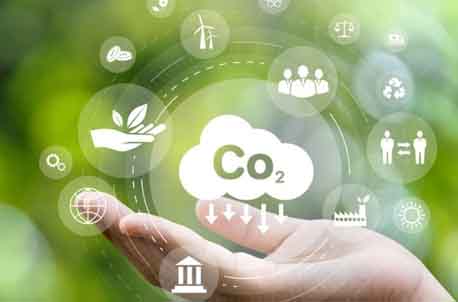A Carbon Credit is equal to one ton of carbon dioxide expelled in the atmosphere. The concept came into existence as a result of increasing awareness on the need for pollution control. It became formal after the agreement among 141 nations known as KYOTO PROTOCOL. Carbon Credits are the certificates awarded to the countries taking active participation in reducing the emissions that cause global warming.
As per the KYOTO PROTOCOL, developing as well as the least developed countries are not bound by the emissions they produce. For the developed nation, to meet the assigned reduction targets, allowances have been issued equal to the number of emissions allowed.
Carbon has become a liquid and investable asset class that now trades approximately US$1 billion per day across physical carbon, futures, and options. Carbon has exhibited attractive historical returns and a low correlation with other asset classes, making it potentially attractive within a diversified portfolio.
